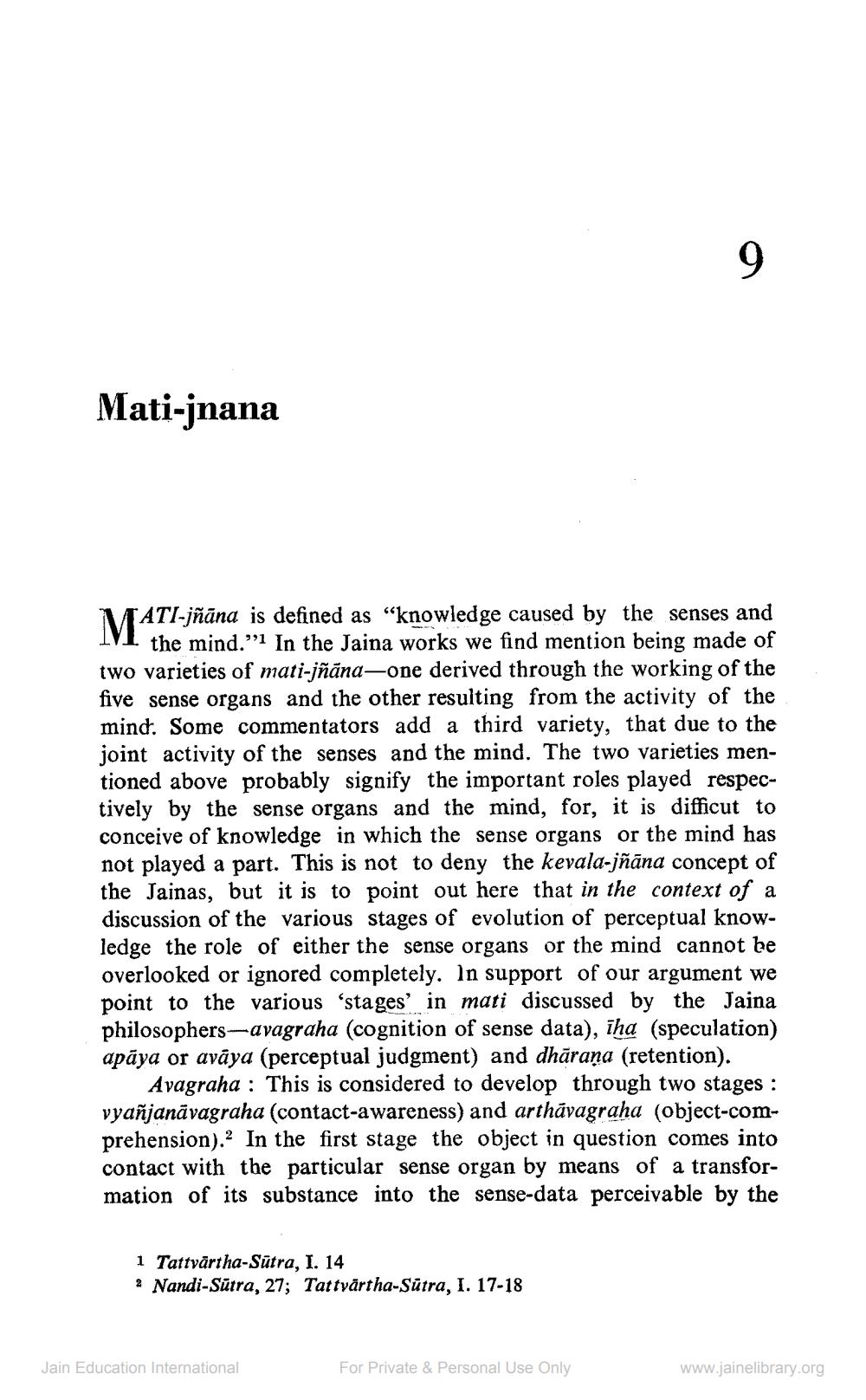________________
Mati-jnana
M ATI-jñāna is defined as "knowledge caused by the senses and W the mind.”l In the Jaina works we find mention being made of two varieties of mati-jñāna—one derived through the working of the five sense organs and the other resulting from the activity of the mind. Some commentators add a third variety, that due to the joint activity of the senses and the mind. The two varieties mentioned above probably signify the important roles played respectively by the sense organs and the mind, for, it is difficut to conceive of knowledge in which the sense organs or the mind has not played a part. This is not to deny the kevala-jñāna concept of the Jainas, but it is to point out here that in the context of a discussion of the various stages of evolution of perceptual knowledge the role of either the sense organs or the mind cannot be overlooked or ignored completely. In support of our argument we point to the various 'stages' in mati discussed by the Jaina philosophers-avagraha (cognition of sense data), iha (speculation) apāya or avāya (perceptual judgment) and dhārana (retention).
Avagraha : This is considered to develop through two stages : vyañjanävagraha (contact-awareness) and arthāvagraha (object-comprehension). In the first stage the object in question comes into contact with the particular sense organ by means of a transformation of its substance into the sense-data perceivable by the
1 Tattvārtha-Sūtra, I. 14 2 Nandi-Sütra, 27; Tattvärtha-Sutra, I. 17-18
Jain Education International
For Private & Personal Use Only
www.jainelibrary.org




